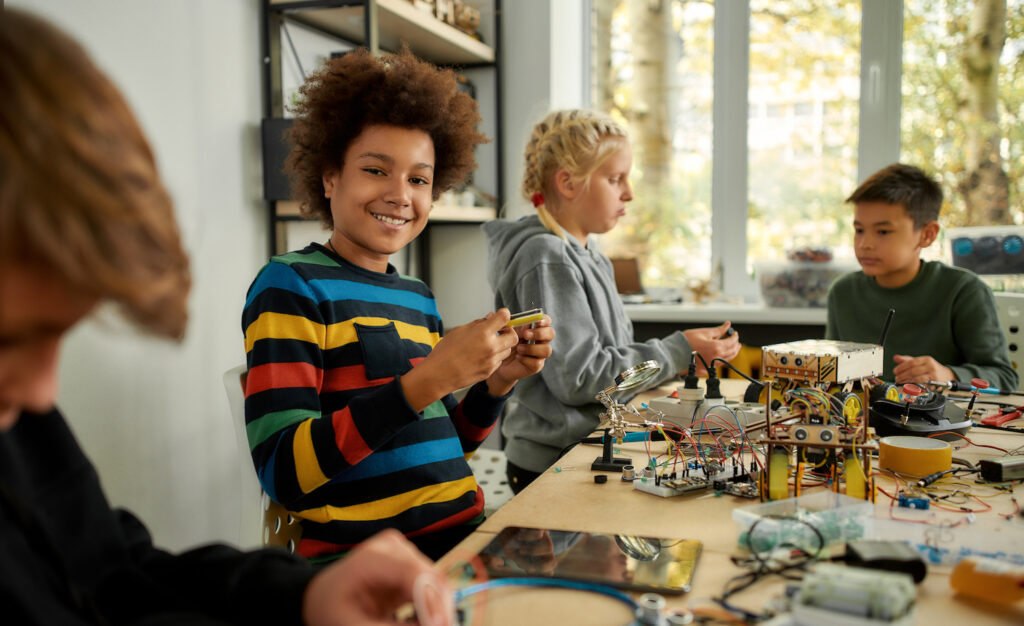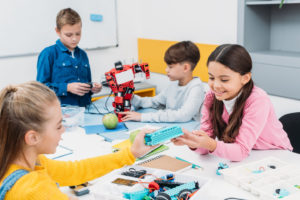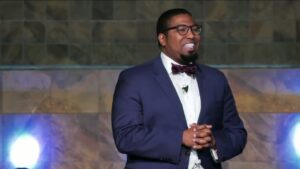Microschools continue to be a popular alternative for families seeking a better education for their children
Microschools and learning pods are growing so popular for families around the country, they have received national media attention.
These learning environments tend to be smaller and more…

Microschools and learning pods are growing so popular for families around the country, they have received national media attention.
These learning environments tend to be smaller and more student-centered, and families have more opportunities to be involved and know what their children are learning in school.
As Michael Horn writes in an article for Education Next, microschools can be thought of as “…one-room schoolhouse meets blended learning and home schooling meets private schooling.”
And parents are loving the results.
“A friend of mine told me to come with her to meet [this microschool teacher]. I left my 3rd grade son with her all day and came back,” Georgia mother Susan Mullens told The Lion. “I was hooked on this teacher running this one-room schoolhouse-type school.”
Later on, her second youngest was invited to join the same school.
“We didn’t even know we were sending our sons to a microschool,” said the mother of six, whose oldest four children she homeschooled.
Mullens says she is grateful to have access to the teacher’s manual of the microschool, and she communicates with the school almost daily through a “meetup app” so she knows what her children are learning.
Throughout Mullens’ education journey, which included halting her career as a certified preschool teacher in order to homeschool, each of her children have attended programs that blended private school and homeschool learning. Her oldest children have already attended and graduated from college, and one recently completed a master’s degree.
With the growth of microschools during the COVID-19 pandmic in 2021, Georgia passed the “Learning Pod Protection Act,” to prohibit regulation of homes and other informal places where parents send their kids to learn. Some of the microschools in the state include Moonrise in Decatur, which is a co-learning space for homeschool students, and an Acton Academy in Buckhead, which is located in the middle of a nature preserve.
On the other side of the country, in Las Vegas, Nevada, a mother not only wanted her children to attend a microschool, she decided to start her own, The Learning Outpost.
Felicia Wright started as a teacher in a charter school and the Clark County School District, one of the largest school districts in the country.
“I just really didn’t like what I was seeing. I just like to come from a place of doing what’s best for children, and there wasn’t always space for that,” Wright told The Lion. “When I was working in public schools, there was more emphasis on how we looked on paper, even to the detriment of the child.”
That approach was “taking the joy out of learning for them,” since she felt she couldn’t be flexible with teaching, as an administrator might walk through the door at any moment.
“I wanted to make sure that my children, when they were going through school, that they would enjoy learning, because you’re gonna to learn for the rest of your life,” she said. “I was taking that away from children when I was in the school district, and I just didn’t want that for my kids.”
In Las Vegas, there are microschools designated as homeschool programs or private schools. Her children and students are registered as homeschoolers so she can offer a “flex day” schedule for families that private schools in the state do not offer.
Since Wright is the founder of her microschool, her own children get to spend a lot of time with her there, but “they still love it” and “don’t want to leave.” She especially enjoys seeing her daughters look forward to spending time with their friends.
“I’m hoping that they’re curious enough and they love to learn that they’ll be able to do whatever they want in this life.”
While no definitive source exists for how many children are currently attending microschools, estimates range from “at least 125,000 serving upwards of 1.5 million learners,” according to Don Soifer of the National Microschooling Center. “[B]ut with so much of this movement working beneath the radar, it’s just an estimate,” he says.



